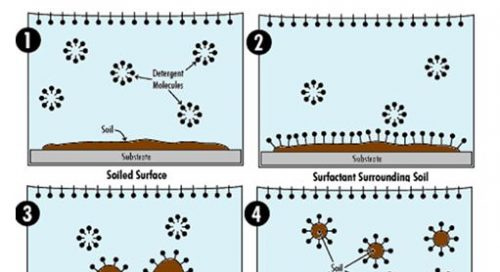SK Capital, the private equity firm, announced that they had acquired specialty chemical maker Deltech Holdings. SK Capital reports that Deltech is a leader in niche applications such as crystalline styrenics such as vinyl toluene, methyl styrene, and divinylbenzene. Vinyl toluene and methyl styrene can be used to make highly crystallized styrenic polymers otherwise known as C9 tackifiers (6 carbons from phenyl ring + 2 carbons from vinyl group + 1 carbon from methyl = 9 carbons). The use of C9 tackifiers is important for making heat resistant adhesives.
Divinyl benzene is similar to styrene, but it’s got an extra vinyl group, which means the molecule can form 4 bonds and when polymerized with styrene it acts as a crosslinker. Crosslinked polystyrene isn’t used much in consumer applications, but it is for the production of heterogeneous catalysts and ion exchange resins. Crosslinking styrene with divinylbenzene prior to doing chemistry to make the polymer a catalyst keeps the catalyst from dissolving into the reaction that it is catalyzing. Heterogenous catalysis allows recovery of the catalyst by filtering through essentially a big coffee filter so that it can be reused.
In February I wrote about how IFF and DuPont’s Nutrition and Biosciences division were merging, but now IFF is divesting the microbial control business to Lanxess. The business is being sold for about $1.3 billion and it is expected to close in 2Q2022. The microbial control business has about 270 employees, two production facilities in the US, and is expected to bring in about $440 million in revenue for 2021. I suspect that this business is very lean right now and needs investment for long term growth. IFF will use the money from the sale to pay down their debt from the massive acquisition of a DuPont division earlier this year.
If you are wondering what microbial controls are then you are probably not alone. In any waterborne product there is a potential for growth of microorganisms over a long period of time. If you’ve ever bought some paint for a small weekend job and then saved that paint for later and opened it months later and it didn’t smell like something had died in there then you are witnessing microbial control chemicals at work. Microbial control chemicals are important for longevity of water based coatings and adhesives, but so are surfactants.
Indorama Ventures has agreed to acquire Oxiteno for $1.3 billion (a common number this month). Oxiteno is a Brazilian based surfactant maker that primarily serves Latin America (LATAM). Surfactants are specialty chemicals and they can be tailored (synthesized) for very specific applications. I’ve written about how surfactants work, their importance, and how they can be used to help extract oil and gas from fracked wells, but they can do so much more. Surfactants can also be used to help facilitate emulsion polymerizations and can be critical in helping water based coatings stay stable on the shelf by keeping the emulsion stable. Personal care products such as lotions, serums, face washes, shampoos, and conditioners are all also dependent on surfactants to function or stay stable.
Oxiteno’s specialty is in taking ethane and propane, making ethylene oxide and propylene oxide, and then polymerizing these oxides in an anionic polymerization. These oxides are the basis of Oxiteno’s name and the anionic polymerization can be intitated with oil loving starting materials such as castor oil derivatives to yield surfactants. Oxiteno can then sell these surfactants to a wide variety of end markets and customers including places like IFF or ExxonMobil.




